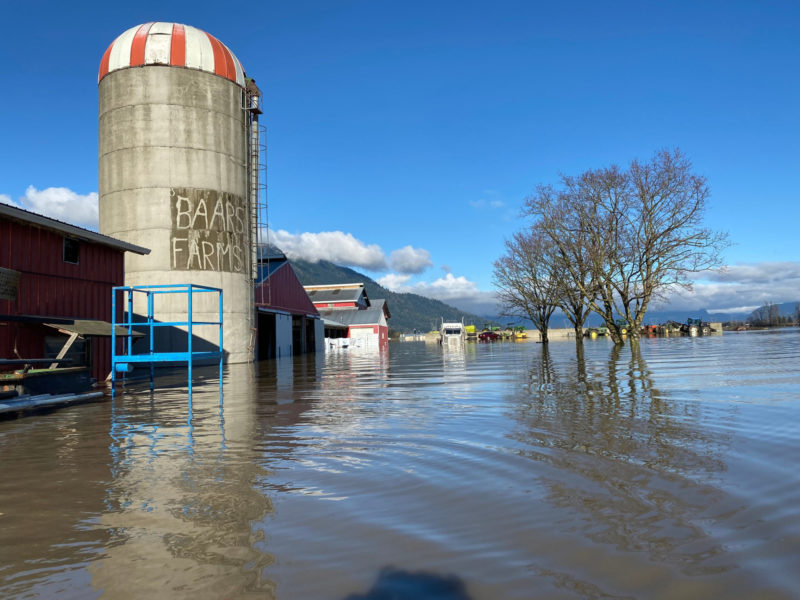Ottawa has denied millions in funding to the three municipalities hit hardest by the 2021 atmospheric rivers.
Abbotsford, Merritt and Princeton received written notice last week that the federal Disaster Mitigation and Adaptation Fund would not support a host of planned projects due to a lack of information.
The application packages each totalled more than 500 pages, leaving the mayors “flabbergasted,” according to Abbotsford Mayor Ross Siemens.
“This is the most productive farmland in the country, and for us to get zero … I mean, we knew we weren’t going to get the whole amount, but we were expecting a substantial chunk,” Siemens says. “We were just absolutely astounded.”
Abbotsford’s long-term DMAF application included three projects that totalled $1.6 billion, Siemens says. Earlier this year, the province announced $76 million for the first of the three projects, which is to increase the Barrowtown Pump Station’s resiliency with wing walls to make sure the infrastructure is protected.
A round of federal funding would have supported design work and the ordering of equipment.
“This [provincial funding] was a very clear message to the federal government that the province takes this issue in our valley here in our region, in our province very seriously,” Siemens says.
The dairy sector expressed disappointment in the decision.
“We’re all disappointed that Abbotsford, Princeton and Merritt didn’t get the funding that they expected, and by all accounts sounds like they were promised, in the throes of the floods,” says BC Dairy Association general manager Jeremy Dunn. “They felt the rug was pulled out from them.”
Siemens says the ball is now in the province’s court.
“Next steps are really to get people to make this a federal government issue. The province [has] given us some good support, but we’ll be relying on them to amplify our voice,” he says.
Meanwhile, UBC researchers are calling for the return of Sumas Lake, which was drained to create Sumas Prairie in 1924.
A new paper finds that restoring the lake to its natural state could help in climate adaptation, endangered species restoration and Indigenous reconciliation.
The idea doesn’t hold water for Siemens.
“This is the most productive farmland in the country. We have three, four generations of families that have poured their heart and soul into [their farms]. This is not just their homes and their life, this is provincial food security,” Siemens says. “[And] if we’re going to relocate those farms, where on earth do you think we are going to find that productive of farmland in the province of British Columbia?”
UBC researchers propose buying out properties on the lakebed, which would cost around $1 billion, based solely on assessed values.
Siemens says the report doesn’t touch on market value or factor in lost revenue and other costs.
“There are no numbers in that report that talk about lost revenue to those farms. It doesn’t talk about what the actual value of the most productive farmland in the country is,” Siemens says. “This is serious business.”


 Sumas class action certified
Sumas class action certified